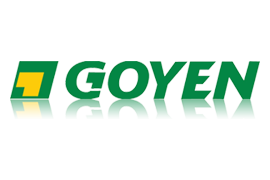Get In Touch Today (02) 4284 5414
Dust Collectors in Wollongong
Optimal Dust Management Solutions
In today's environmentally sensitive environment, dust emission control is of upmost importance for both the health and safety of employees and neighbours.
At Hitemp Compressed Air Services, we offer solutions for dust control or product collection with our dust collectors. Our dust collectors are designed to efficiently remove particulate matter from the air, improving air quality and ensuring compliance with environmental regulations. Each business has unique needs, which is why we offer a range of dust collector systems suitable for various applications and industries. Whether you're dealing with fine dust in woodworking shops or heavier particles in industrial settings, our systems are tailored to meet your specific requirements.
For personalised advice, call us on
(02) 4284 5414. Located in Wollongong, we also provide solutions for
pneumatic equipment,
air preparation,
gas monitors,
industrial valves and actuators,
solenoid valves,
instrumentation,
equipment servicing and more.
Tailored for Various Industries
Our dust collector systems are designed to cater to a broad array of applications, making them indispensable for:
- Mechanics who require pristine air quality to protect sophisticated machinery and ensure a clean workspace
- Agriculture professionals prioritising crop health and worker safety amidst particulate matter
- Laboratories where meticulous air purity is essential for accurate results
- Hospitals demanding sterile environments for the wellbeing of patients and staff
- Kitchen and joinery businesses needing to maintain cleanliness and prevent contamination
Utilising over 30 years of cumulative expertise, Hitemp Compressed Air Services offers unparalleled solutions in dust collection. For your convenience, we also provide
dust monitors,
servicing and an array of
air compressors—from
mobile options to
reciprocating and
rotary.
How Often Do Dust Collectors Need Servicing?
The frequency of servicing or replacing dust collectors can vary widely depending on several factors. However, here are some general guidelines:
- Regular Inspections & Maintenance: Dust collectors should be inspected regularly for any signs of wear or damage. This can be as often as monthly for heavily used systems in harsh environments or quarterly to semi-annually for less intensive use.
- Filter Replacement: The filters in dust collectors need to be replaced periodically. This can range from every few months to annually depending on the dust load and type of filter material.
- Complete Servicing: A thorough servicing including checking and repairing components like motors, fans, and electrical systems should be done annually.
- Replacement of Parts: Certain parts like hoses or seals might need more frequent replacement due to wear and tear.
- Total Replacement: The lifespan of a dust collector can vary, but many can last for 10 years or more with proper maintenance. However, advancements in technology or changes in production needs might necessitate an earlier replacement.
Frequently Asked Questions
-
What are the key considerations when selecting a dust collector?
When choosing a dust collector, consider the volume of air that needs to be cleaned, the type of dust being collected, the size of the particles and the required filtration efficiency. It's also crucial to assess the system's compatibility with existing equipment and workspace layout.
-
How often do dust collector filters need to be replaced?
The frequency of filter replacement for dust collectors varies based on usage, the type of dust and the specific system in place. Regular inspections are essential to gauge filter condition. Filters should be replaced as needed to maintain optimal performance and air quality.
-
Can dust collectors be customised for specific industry needs?
Absolutely. Dust collectors can be specifically tailored to meet the exact requirements of different industries. Customisation can include adjustments to filtration efficiency, size and the incorporation of features such as automatic filter cleaning mechanisms or noise reduction systems.
Site Links
Compressed Air Services
Pneumatics
Westinghouse Portable Power Range
Trading Hours
- Monday
- -
- Tuesday
- -
- Wednesday
- -
- Thursday
- -
- Friday
- -
- Saturday
- Closed
- Sunday
- Closed
ABN 37 003 379 235
















